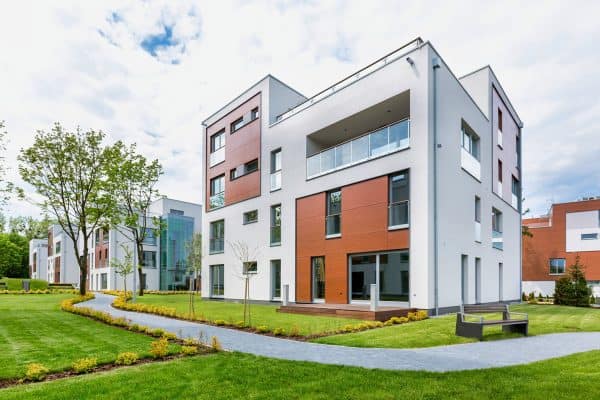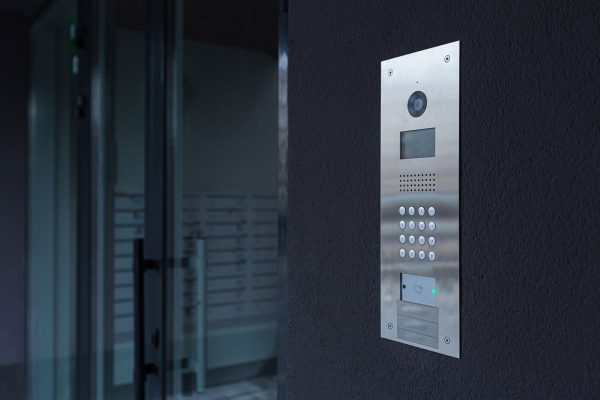Having a good-quality of water in your apartment is extremely important. You can't settle for simply having running water; you need to make sure that it's actually healthy and free of hard minerals that can affect the quality of your appliances, items, and even your health. So, what can you do when you notice you have hard water in your apartment? We have researched answers for you.
If you want a quick solution, you can do the following:
- Boil the water to dissolve minerals
- Use acidic cleaning agents for the kitchen
- Put washing soda in the laundry
- Install a water softener
Installing a water softener is the long-term solution, but you can apply these other solutions as a temporary measure. If you need to remove the stains caused by hard water (which happens often), use distilled white vinegar.
There are many ways you can work around hard water, and it's exciting and more productive if you know the science behind it. Keep reading below to learn more about how and why you should soften your hard water.

How To Soften Hard Water In Your Apartment
Softening the hard water is important to get rid of hard minerals that can ruin your surfaces. Aside from this, although it's not a health risk, hard water can dry your skin and hair.

Water is one of our basest need, and they are often overlooked as the cause of a slight decline in our lifestyle. So, it is best to recognize early how the quality of your water can affect every aspect of your life.
Here is how you can soften the hard water in your apartment.
Boil The Water
Boiling hot water can dissolve its hard minerals, particularly calcium bicarbonate. However, this may only be a temporary solution since the hot water only precipitates the minerals temporarily.
After boiling the water, you will notice specks of white at the bottom. These are the minerals contained in hot water.
However, boiling only removes the temporary hardness of water, so it cannot be a long-term solution especially if you don't have enough time to boil all the water you will need for the house.
After boiling, it is best to transfer the water back and forth between two containers until the air is restored into the water.

Use Acidic Cleaning Agents
If you notice white scum accumulating on the sides of your sink, or along your plates and other surfaces, the minerals that were contained in the water you used to wash the dishes might have accumulated on the sides of your kitchen.
This build-up happens when the minerals react with soap, and you can use cleaning acids to counteract the effects of the reaction.
Note that this is also a temporary solution, and you will almost always experience having to clean the surfaces twice unless you install a more sustainable solution.

Put Washing Soda

Your laundry is also one of the things to think about if you have hard water in your apartment. If you don't soften your water, the minerals can embed themselves in your clothes, making them look dingy.
Doing this can also ruin your clothing, so it's crucial to soften the water first before letting them touch your laundry.
Sodium Carbonate which is in washing soda can neutralize the hard minerals contained in the water. Make sure to treat the hard water with washing soda first before putting it in your clothes so the mineral ions can effectively be removed.


Check out this washing soda on Amazon.
Install A Water Softener

Installing a water softener on your faucets or sinks is a more sustainable solution since you won't have to spend time trying to soften water. You can install it yourself, but it is best to hire a plumber to avoid repairs in the future.
Having a water softener can improve your quality of life since your clothes will always look soft and clean. If you have sensitive skin, you won't have to deal with sudden breakouts because of dry skin.
The water will also taste fresher, with no traces of the earthy taste caused by hard minerals. Soft water will also make your appliances and drains last longer since there won't be any mineral build-up that can clog the drains and ruin your surfaces.


Check out this water softener on Amazon.
What is Hard Water?
Hard water is typically defined as "water with a high concentration of calcium, magnesium, and other minerals". These minerals form into ions, which can precipitate on essential surfaces such as pipes, drains, and storage.
If you try drinking hard water, you will detect a slight earthiness on the taste, if not metallic. It can also make your skin feel dry, which can be a hassle if you miss that squeaky-clean feeling after the bath.
The dry feeling is caused by the hard minerals potentially "scraping" over your skin and hair, causing them to dry up.
There are two types of hard water--temporary and permanent. Temporary hard water can be dissolved using boiling temperatures. Permanent hard water, on the other hand, contains high amounts of anions such as sulfate anions.
Permanent hard water cannot be softened by boiling, but it can be softened through other methods such as the application of acids.
Is Hard Water Healthy?

Surprisingly, despite the many hassles hard water can bring, they actually have health benefits--save for having dry skin and hair. Since hard water contains calcium and magnesium, drinking this water can make the bones stronger and prevent the following illnesses:
- Kidney stones
- Stroke
- Hypertension
- Coronary Artery Disease
This is the reason some people only soften water for aesthetic and functional purposes.
What's The Best Water Softener?
The best water softener is one that fits your budget and can effectively do the job. However, here are the softeners that most people testify by.
GE Smart Home Water Softener For Quality

This smart water softener can soften the water in the entire house. Its smart technology allows you to access how much water you use and allows for regeneration schedules. This water softener is also easy to install, so you can try doing it yourself.
Waterboss 900 For Value for Money
If you want a more affordable alternative that still gets the job done, the Waterboss 900 36,400-grain is a great choice. The 36,400-grain refers to the number of grains available to soften the water, making it an excellent choice for large amounts of hard water.
Why Should You Soften Your Water?
Since having hard water does have health benefits, it could be confusing if water softeners are still necessary.
However, having soft water is still more beneficial since water itself, even without excess calcium and magnesium, is still healthy and can improve your health. Not to mention, you'll drink more water if it doesn't have a weird taste.
Aside from this, having soft water will prevent damages and expensive repairs on your kitchen, bathroom, and laundry room. Soft water will help maintain your home better, and improve your quality of life.
Types of Water Softeners
There are different types of water softeners. These softeners work in different ways operations-wise and maintenance-wise, although they have the same result.
Here are the different types of water softeners.
Salt-based
These water softeners soften hard water through ion exchange. This works by measuring the water, then running a cleaning cycle when the resin bed becomes too saturated.
The softener flushes out the hard minerals in the system, then lets it flow through the resin bed. This results to having soft water.
Salt-based water softeners need monthly-refills to function. You will also need to set them up if they're newly-installed in your house. You will also need to look out for a salt bridge in the brine tank especially during humid seasons.
Salt-Free
Salt-free water softeners physically remove the minerals from hard water using the Template Assisted Crystallization system. This process does not actually soften the water, but conditions it so that the crystals doesn't stick to your sink, tubs, drains, or pipes.
Compared to salt-based softeners, this is more affordable and doesn't take away the potential health benefits of hard water should you choose to use it.
Make sure to change the filter annually to keep it clean and well-maintained.
Final Thoughts
Having hard water in your apartment can be a hassle, so it's important to put up effective and sustainable systems in place. Make sure to address any water-related issues immediately to prevent expensive repairs or health issues.
If you enjoyed this article, check out the following posts:



![Top view of parking area with small garden in modern building. - Does An Apartment Complex Have To Provide Parking [Inc. Handicap]](https://buyrentlive.com/wp-content/uploads/2022/12/Top-view-of-parking-area-with-small-garden-in-modern-building-1-600x400.jpg)